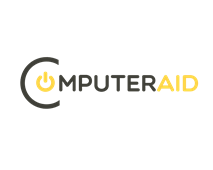
Introduction
We created this list by noting the books mentioned most in online project management communities. We also scoured Amazon reviews and totted up star ratings to build our ultimate list of agile books.
Many of the concepts descibed in these books form the basis of the increasingly popular agile project management courses which provides guidance for project managers on agile projects.
If you like the graphic below, please link to this page from your site or share on social media.

Our list of the top 15 best agile books are as follows (best at the top).
1 – ‘Running Lean’ by Ash Maurya
Running Lean: Iterate from Plan A to a Plan That Works. Ash Maurya (2012). O’Reilly Media. ISBN-13: 978-1449305178 An ideal tool for business managers, CEOs, small business owners, developers and programmers, and anyone who’s interested in starting a business project.
2 – ‘Scrum: The Art of Doing Twice the Work in Half the Time’ by Jeff Sutherland
Scrum: The Art of Doing Twice the Work in Half the Time. Jeff Sutherland (2015). Random House Business. ISBN-13: 978-1847941107 Filled with practical examples relevant to any organisation. It will make you re-think the fundamentals of successful management, plus show you how to get both ambitious and everyday tasks done, however large or small your organisation is.
3 – ‘The Phoenix Project: A Novel About IT, DevOps, and Helping Your Business Win’ by Gene Kim, Kevin Behr and George Spafford
The Phoenix Project: A Novel About IT, DevOps, and Helping Your Business Win. Gene Kim, Kevin Behr and George Spafford (2016). Random House Business. ISBN-13: 978-0988262508 An entertaining fictional story that follows an IT manager in a company with a troubled project, capturing the dilemmas and offering real-world solutions that the reader can learn from.
4 – ‘The Lean Startup: How Constant Innovation Creates Radically Successful Businesses’ by Eric Ries
The Lean Startup: How Constant Innovation Creates Radically Successful Businesses. Eric Ries (2011). Portfolio Penguin. ISBN-13: 978-0670921607 Most new business failures are preventable. Now is the time to think Lean. This author highlights the importance of learning what your customer wants and adapting before it’s too late. A must for innovative managers and entrepreneurs.
5 – ‘Essential Scrum: A Practical Guide to the Most Popular Agile Process’ by Kenneth Rubin
Essential Scrum: A Practical Guide to the Most Popular Agile Process. Kenneth S. Rubin (2012). Addison Wesley. ISBN-13: 978-0137043293 An enjoyable read with visual icon language used to create the diagrams. Nice glossary for buzz word reference. Great for beginners and for Scrum Masters’ team training.
6 – ‘Scrum: a Breathtakingly Brief and Agile Introduction’ by Chris Sims and Hillary Johnson
Scrum: a Breathtakingly Brief and Agile Introduction. Chris Sims and Hillary Louise Johnson (2012). Dymaxicon. ISBN-13: 978-1937965044 A perfect, pocket-sized overview of the bare essentials of Agile development and Scrum. Good reference for the experienced and a brief but effective primer for beginners.
7 – ‘The Scrum Field Guide: Agile Advice for Your First Year’ by Mitch Lacey
The Scrum Field Guide: Agile Advice for Your First Year. Mitch Lacey (2012). Addison Wesley. ISBN-13: 978-0321554154 Are you having day-to-day problems implementing Scrum? When they arise, pick up this handbook. Flick to the chapter you need and discover how the author has been in exactly the same situation as you! Less theory, more practical every-day advice.
8 – ‘Lean Analytics: Use Data to Build a Better Startup Faster’ by Alistair Croll & Benjamin Yoskovitz
Lean Analytics: Use Data to Build a Better Startup Faster. Alistair Croll and Benjamin Yoskovitz (2013). O’Reilly Media. ISBN-13: 978-1449335670 A staple book for the hands of those in a Lean startup. Learn which metrics matter according to your business type, model and the stage in which you are at, in a non-daunting way. Measuring progress of a new startup has never been easier!
9 – ‘Impact Mapping: Making a Big Impact with Software Products and Projects’ by Gojko Adzic
Impact Mapping: Making a Big Impact with Software Products and Projects. Gojko Adzic (2012). Provoking Thoughts. ISBN-13: 978-0955683640 Impact mapping helps to create better plans and roadmaps that ensure alignment of business and delivery, and are easily adaptable. This book aims to help ensure software products and projects don’t die a slow death without making any impact.
10 – ‘Succeeding with Agile: Software Development Using Scrum’ by Mike Cohn
Succeeding with Agile: Software Development Using Scrum. Mike Cohn (2009). Addison Wesley. ISBN-13: 978-0321579362 Ideal for those who are spreading Scrum into an organization. It covers every stage of the transition from getting started, helping individuals into new roles, structuring teams, scaling up, working with a distributed team, to implementing effective metrics and continuous improvement.
11 – ‘Agile Product Management with Scrum: Creating Products that Customers Love’ by Roman Pichler
Agile Product Management with Scrum: Creating Products that Customers Love. Roman Pichler (2010). Addison-Wesley Professional. ISBN-13: 978-0321605788 A fundamental book for current or prospective product owners, as well as executives and coaches interested in establishing agile product management. Understand the role and practices, and how to avoid and overcome the common challenges.
12 – ‘Agile Software Development, Principles, Patterns, and Practices’ by Robert C. Martin
Agile Software Development, Principles, Patterns, and Practices. Robert C. Martin (2002). Pearson. ISBN-13: 978-0135974445 For Software Engineers, Programmers, and Analysts who want to understand how to design object-oriented software with state-of-the-art methods.
13 – ‘Agile Project Management: Creating Innovative Products (Agile Software Development)’ by Jim Highsmith
Agile Project Management: Creating Innovative Products (Agile Software Development). Jim Highsmith (2009). Addison Wesley. ISBN-13: 978-0321658395 An exploration into the best practices for managing projects in agile environments. The author has over 30 years’ experience as an IT manager, product manager, project manager, consultant, and software developer. Ideal for project leaders, managers, and executives at all levels.
14 – ‘Scrum: A revolutionary approach to building teams, beating deadlines, and boosting productivity’ by Jeff Sutherland
Scrum: A revolutionary approach to building teams, beating deadlines, and boosting productivity. Jeff Sutherland (2014). Random House Business Books. ISBN-13: 978-1847941091 Written by one of the Scrum founders, this book delves into the origins and evolution of Scrum, referencing real world examples with autobiographical elements. Not so much a practical book, but useful for explaining the “whats” and the “whys” about Scrum.
15 – ‘Peopleware: Productive Projects and Teams’ by Tom Demarco
Peopleware: Productive Projects and Teams Tom Demarco (1988). John Wiley & Sons. ISBN-13: 978-0932633057 A great insight into team development and what makes a company succeed. Statistical evidence and humour is used to point out that the manager’s function is not to make people work, but make it possible for them to work.
Which agile books are for you?
If you’re just getting up to speed with agile, then we hope the list of books above will help you. If you need further help in understanding agile, there are some popular courses available. An agile project management course, PRINCE2 Agile course, or Scrum course in particular are popular.
If you just want to learn on your own and you’re an agile amateur, then check out ‘Scrum: A Breathtakingly Brief and Agile Introduction’.
Are you leading an agile team? Well, if you agree with the notion that many project problems are sociological, not technological, best-seller ‘Peopleware’ by Tom DeMarco and Tim Lister will help you tighten your team. ‘Succeeding with Agile’ by Mike Cohn will benefit those who are leading an agile transition within an organization.
If you’re having day-to-day issues implementing Scrum, we’d recommend keeping ‘The Scrum Field Guide’ by Mitch Lacey handy. As its always best to hear things straight from the horse’s mouth, both titles of ‘Scrum’, written by one of Scrum’s founders, Jeff Sutherland, also come highly recommended for anyone using Scrum.
If you’re a product owner, ‘Agile Product Management with Scrum’ by Roman Pichler clarifies the role and responsibilities of the Scrum product owner.
For those who are involved in starting a business project, make sure to add ‘Running Lean’ by Ash Maurya, ‘Lean Analytics’ by Alistair Croll & Benjamin Yoskovitz and ‘The Lean Startup’ by Eric Ries to your reading list.
Software developers need look no further than ‘Agile Software Development’ by Robert C Martin for good design practice, and ‘Impact Mapping’ by Gojko Adzic and Marjory Bisset for creating better plans and roadmaps.
If you prefer fiction over theory, ‘The Phoenix Project’ by Gene Kim and Kevin Behr cleverly tells the tale of an IT project, taking the reader through its successes and failures.
Last but not least, delve into ‘Agile Project Management’ by Jim Highsmith for an integration of the best project management, product management, and software development practices.
We hope you find this top agile books list useful. Feel free to share or link back to this page so others can benefit from it. Don’t forget to pin the graphic to your Pinterest board for easy reference!








